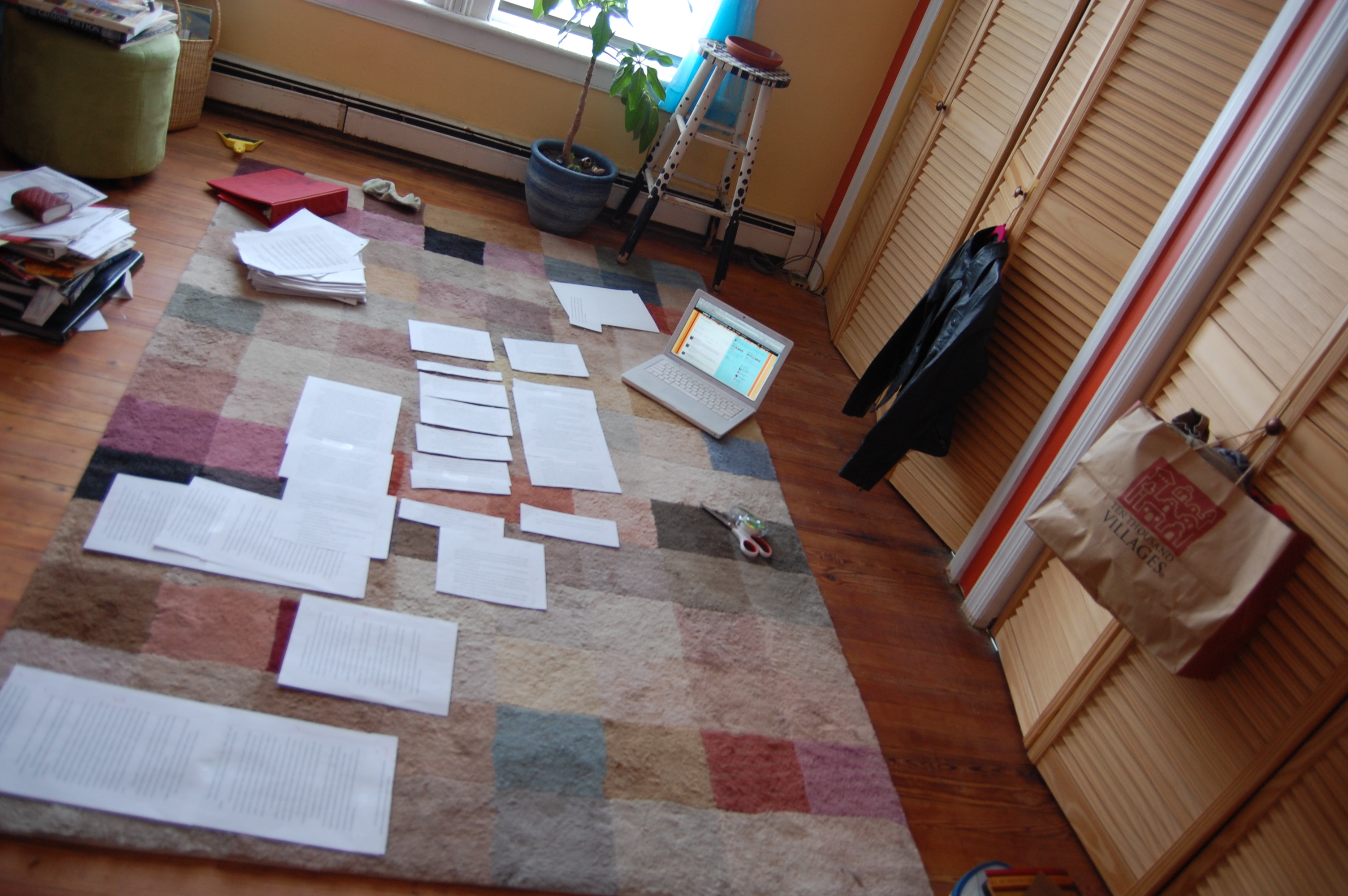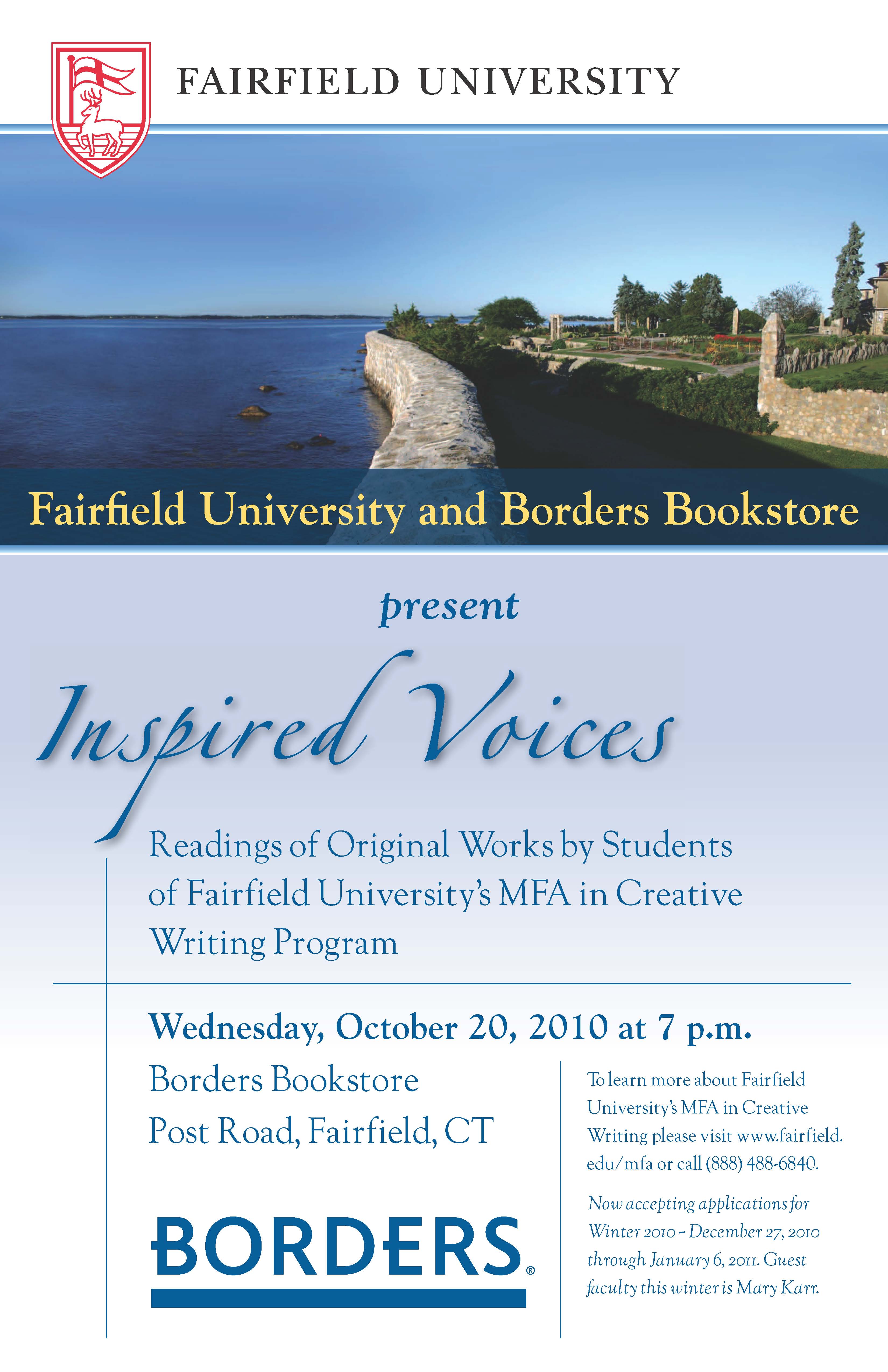I’m back! I was absent from this blog for a good month because I was finishing my thesis ( my novel) for my MFA in creative writing.
It felt damn near impossible to spend any amount of time writing anything but my novel, or any of the associated bits and bobs that go along with it, so I haven’t been on this blog at all, but I have been thinking of it. In the last month, I came up with a million ideas for posts while driving to work, riding in the car to and from holidays at my parents’ house, walking the dog, taking showers and folding laundry. I didn’t write many of these ideas down. Most of them slipped from my mind as soon as I came home, determined to jot them down in the various notebooks that clutter every surface in our house. I do know that the posts ranged in theme from dreams to politics to an angry, Twitter-inspired rant about grammar. (I actually half wrote that last one, but it got canned after I made a glaring grammatical error on Facebook and was called out by a former editor.)
My blog is not the only thing that I’ve neglected in the last month, as I struggled to finish scenes, make character’s motivations more believable and put chapters in order. My house was filthy. My garden, which is a major source of food for us in the summer, was nearly overtaken by a violent weed uprising, and there were many seedling casualties. My students got about half as many emails from me as they usually do, (although they probably still thought that was too much.) Our pile of laundry toppled out of the closet and began to crawl across the bedroom floor, like a soldier involved in guerrilla warfare. My dog was allowed to forget basic commands like sit, heel and don’t eat that manuscript. My friends called me and emailed me, but alas, only 20 percent of the calls and emails have been returned.
Professors told me it would be like this. I read quotes about the insanity of non-stop fiction writing. I heard firsthand from other students in my MFA program that the last push of putting together a thesis is just like going crazy.
They were right, and I’m finally able to stop raving, wipe the froth from my mouth, take a break and write a blog post or two.
I really did question my sanity this month. Not because of the novel writing process itself, per se, but because all I’ve wanted to do with my life, ever since I was a toddler, was write a novel. And it turns out that writing a novel, in its most intense form, is hell. What kind of little kid was I to have aspirations like this? Why did it take me so long to realize that my dream was so dumb? Is it too late to decide that I want to be something else?
Truth is, intense novel writing isn’t healthy. It’s like drinking red wine. In small doses, it can be good for you. My life has been dramatically improved by the Graham Greene method of writing 500 words a day. Five hundred words a day is a nice round number. It’s healthy. It’s reasonable. You can write 500 words a day and live a normal, productive life.
But if you get a steady diet of novel-writing, if you do nothing but work on a novel for days on end, hoo boy, no one wants to be around you. That’s less like a glass of wine a day and more like wandering around with Thunderbird in a paper bag. You never change out of your pajamas. You start walking around in a daze, not really interacting with the people who are actually in front of you, but always preoccupied with what some imaginary people are supposed to be doing. Then you get mad at the imaginary people for not doing the things that they are supposed to be doing. You stare at a blank screen and despair. You write a page and are elated. You realize the page of writing is terrible and it’s back down into the pit of despair again. You don’t so much sleep as pass out.
I’m glad that’s over. Or at least that it’s over for now, because I’m not actually done with my novel. My thesis was done and sent out to my mentor and reader early this week, but the novel is still not quite finished. Which means that I’m sure I’ll disappear to work on it again. For now, I’m enjoying the real world, which is a crazy place, but not as insane as the world inside my head.





